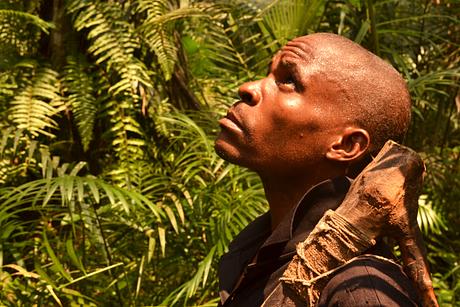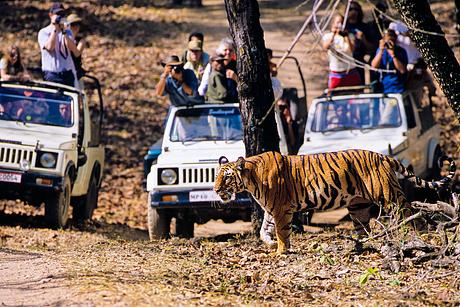Having lived on their lands sustainably since time immemorial, Indigenous peoples understand and take care of their environment better than anyone - it’s no coincidence that 80% of the world’s biodiversity resides in their lands.
So why do conservation organisations and western governments continue to support a model of nature protection that has proven to fail the land and its peoples? When will we start listening to the best guardians of the natural world?
 © Lambert Coleman
© Lambert Coleman
Our “Decolonizing Conservation with Mordecai and Fiore” event aims to address these exact questions through an online panel discussion with Fiore Longo & Dr Mordecai Ogada (see below for more info on the speakers).
The event will take the shape of a panel discussion followed by a short Q&A where you’ll have the opportunity to put your questions to the panellists. Post-event we’ll also share suggested readings and films should you be interested in diving deeper!
Date: 1 February 2022
Time: 1PM EST; 6PM UK-time
Where: Online (link will be provided after sign up)
Ticketing
We’ve chosen not to ticket the event as we want everyone to be able to partake, however, we do ask that you help support our crucial campaigns by giving what you can. Anything as little as one pound/dollar can go a long way in helping ensure tribal peoples are in charge of their own futures!
If you’d like to explore other ways in which you can support us or have any questions about the event don’t hesitate to drop us an email on [email protected].
Keep scrolling to read more about the speakers and our “Decolonize Conservation” campaign.
Speaker bios:
Fiore Longo is the head of the “Decolonize Conservation” campaign at Survival, with vast experience working with Indigenous peoples.
Dr Mordecai Ogada is an ecologist and conservation writer who has been involved in conservation policy and practice for the last 18 years in Kenya.
What does “decolonize conservation” mean?
Decolonizing conservation is becoming increasingly crucial in discussions around securing Indigenous lands. The need for decolonizing conservation is based upon the notion that the current neo-colonial model devalues Indigenous knowledge and considers “western” models of conservation to be superior, whilst violating Indigenous peoples human rights.
The conservation industry & its impact
The term “fortress conservation” refers to the predominant model of conservation applied around the world whereby Indigenous peoples and other local populations are evicted from their lands to create a park that aims to “preserve nature.” Often, these parks are then accessible to tourists who can afford to pay for a luxurious safari, whilst the local population who depends on the land for survival is prohibited from entering their ancestral land.
This ignorant ideological stance not only fails to understand the complexity of Indigenous peoples ways of life, but it violates basic human rights and is rooted in racism. The fact that it manages to simultaneously fail to protect the very environment it claims to be safeguarding is simply the cherry on top.

Sadly, the plights suffered by tribal peoples doesn’t stop there. Well known conservation groups like WWF (World Wide Fund) and WCS (Wildlife Conservation Society) have been repeatedly implicated in several human rights abuses against Indigenous communities in the name of “conservation” - ranging from beatings to rape and murder. The Baka people from the Congo Basin have denounced WWF on various occasions, having suffered gross human rights violations at the hand of so called “eco-guards.” Yet they are still being ignored by governments and organisations alike. Watch this testimony of a Baka man recounting crimes committed by WWF funded Eco-guards – one of many.
You can also find independent investigations into WWF mistreatment of Indigenous peoples, for example:
- Channel 4 Unreported World: Forest of Fear
- Zembla Documentary on WWF
- Buzzfeed investigative report
To learn more about our “Decolonize Conservation” campaign click here.
Don't forget to follow us on social media: Facebook, Instagram and Twitter.
